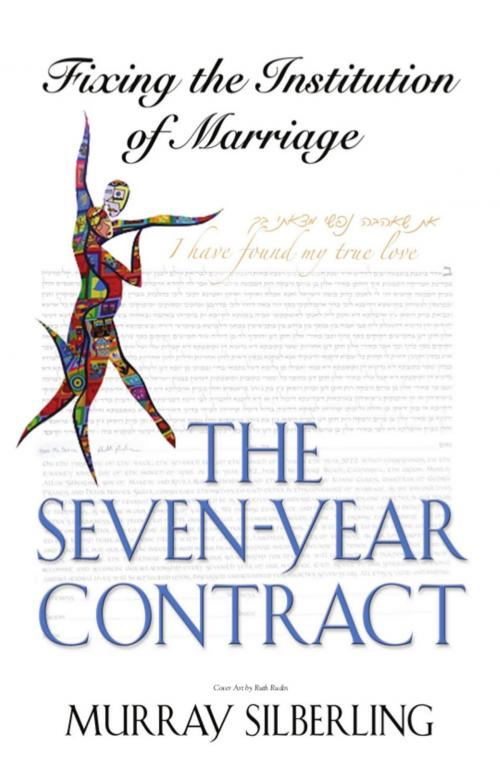The Seven Year Contract: Fixing the Institution of Marriage
Nonfiction, Family & Relationships, Relationships, Marriage| Author: | Murray Silberling | ISBN: | 9781626466111 |
| Publisher: | BookLocker.com, Inc. | Publication: | October 1, 2013 |
| Imprint: | Language: | English |
| Author: | Murray Silberling |
| ISBN: | 9781626466111 |
| Publisher: | BookLocker.com, Inc. |
| Publication: | October 1, 2013 |
| Imprint: | |
| Language: | English |
The institution of marriage today is broken. Over 50% of young people are not getting married. Marriages are not attractive to young people because they are not examples of loving, healthy relationships. The majority of marriages today either ends in divorce or become suffering relationships of tolerance and coexistence. One or both spouses walk on eggshells, uncomfortable to communicate regarding many of the unhealthy issues, for fear of repercussions.
The Seven Year Contract is a process of fixing the institution of marriage through a proactive approach to developing and maintaining healthy relationships. It is a process of renewal that is good for everyone, from pre-married to those who have been married for over 40 years. Therefore I have formatted this book in chronological terms of the issues that come up in marriage during the various seven-year periods. The issues of newlyweds are so different than those of people with children or parents dealing with the empty nest, or couples facing the changes of retirement.
There are, in fact, many changes in our lives that critically impact our marriages that need to be navigated through, and The Seven Year Contract gives a process of how to communicate and negotiate these changes. There are not only situational changes, but also physical changes with age, geographic, economic and lifestyle changes that we need to address.
This renewal process begins with the question, “do we still want to be married?” I know that when we say our vows, “until death do we part,” we mean it. But the demographics say otherwise. In fact we are answering that question by the way that we act towards one another, due to the fact that we are not allowed to question it. Many people feel “stuck” in a bad place in their marriage, with no way to bring positive change. Sometimes it leads to divorce, infidelity or to a loveless platonic relationship.
The Seven Year Contract explains how to go through the renewal process. From the question regarding your wish to be married, you learn how to communicate with candor your desires and needs to one another. Most couples don’t know how to negotiate in a healthy manner. You learn the art of negotiation, so that you can build together a marriage union and get on the same page towards your goals. There are many examples of how to negotiate.
The healthcare field has learned their lesson that acute care for the already sick doesn’t work. Neither does it work for us to continue to bandage, deny or ignore the wounds of marriage. The new approach to healthcare is a proactive process of wellness. We need this type of change in the institution of marriage today. Often what we view as “laboring or working” at our marriage is only patching up things until next time. If we can convert the marriage to a proactive one of health and renewing of relationship, we will not only have fewer divorces, but more happy, healthy and joyous marriages.
The institution of marriage today is broken. Over 50% of young people are not getting married. Marriages are not attractive to young people because they are not examples of loving, healthy relationships. The majority of marriages today either ends in divorce or become suffering relationships of tolerance and coexistence. One or both spouses walk on eggshells, uncomfortable to communicate regarding many of the unhealthy issues, for fear of repercussions.
The Seven Year Contract is a process of fixing the institution of marriage through a proactive approach to developing and maintaining healthy relationships. It is a process of renewal that is good for everyone, from pre-married to those who have been married for over 40 years. Therefore I have formatted this book in chronological terms of the issues that come up in marriage during the various seven-year periods. The issues of newlyweds are so different than those of people with children or parents dealing with the empty nest, or couples facing the changes of retirement.
There are, in fact, many changes in our lives that critically impact our marriages that need to be navigated through, and The Seven Year Contract gives a process of how to communicate and negotiate these changes. There are not only situational changes, but also physical changes with age, geographic, economic and lifestyle changes that we need to address.
This renewal process begins with the question, “do we still want to be married?” I know that when we say our vows, “until death do we part,” we mean it. But the demographics say otherwise. In fact we are answering that question by the way that we act towards one another, due to the fact that we are not allowed to question it. Many people feel “stuck” in a bad place in their marriage, with no way to bring positive change. Sometimes it leads to divorce, infidelity or to a loveless platonic relationship.
The Seven Year Contract explains how to go through the renewal process. From the question regarding your wish to be married, you learn how to communicate with candor your desires and needs to one another. Most couples don’t know how to negotiate in a healthy manner. You learn the art of negotiation, so that you can build together a marriage union and get on the same page towards your goals. There are many examples of how to negotiate.
The healthcare field has learned their lesson that acute care for the already sick doesn’t work. Neither does it work for us to continue to bandage, deny or ignore the wounds of marriage. The new approach to healthcare is a proactive process of wellness. We need this type of change in the institution of marriage today. Often what we view as “laboring or working” at our marriage is only patching up things until next time. If we can convert the marriage to a proactive one of health and renewing of relationship, we will not only have fewer divorces, but more happy, healthy and joyous marriages.















